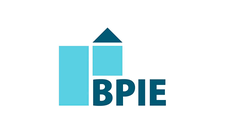Search eceee proceedings
EDI-Net: A smarter approach to city-scale energy management
Panel: 4. Mobility, transport, and smart and sustainable cities
This is a peer-reviewed paper.
Authors:
Graeme Stuart, De Montfort University, United Kingdom
Carl Holland, De Montfort University
Paul Fleming, De Montfort University
Abstract
Energy metering data is becoming 'smart' – sub-hourly and downloaded at regular intervals in a day - but the software which is used to display such data remains 'dumb'. Such software relies on the experience of the energy manager to identify instances where consumption is outside of a typical pattern. The analyst must trawl through data looking for problems. Though alarms can be set in 'dumb' software – these alarms are also dumb – typically an energy manager sets maximum and minimum thresholds and is notified when they are exceeded.
This paper presents 'smart' software and advocates for a new approach to energy management. The software maintains a detailed model of consumption patterns across a whole portfolio of buildings and communicates energy performance in a user friendly way. Rather than simply alarming on peaks and troughs it can track unexpected levels of consumption and manage a list of exceptions. The software is also 'smart' because it opens up energy management to a wider community of stakeholders, through the use of easy to understand communication techniques.
It is now possible for software to track performance of an entire building portfolio, notifying the energy manager only when something unexpected occurs. With a continually evolving model of consumption patterns across the entire portfolio smart software can present the energy manager and the wider community of stakeholders with interactive high level views on the performance of the portfolio as a whole whilst allowing a user to 'drill' down to see the detail on demand. Reports can be designed for energy experts or for other professionals such as finance managers and decision makers enabling better communication across an organisation and more effective energy management.
The EDI-Net project is advocating an approach to energy management which engages a community using modern, scalable communication tools with an ambitious approach to modelling, analysis and visualisation of large datasets.
Downloads
Download this presentation as pdf: 4-421-17_Stuart_display.pdf
Download this paper as pdf: 4-421-17_Stuart.pdf
Panels of
1. Foundations of future energy policy
2. Policy: governance, design, implementation and evaluation challenges
4. Mobility, transport, and smart and sustainable cities
5. Buildings and construction technologies and systems
6. Buildings policies, directives and programmes
7. Appliances, products, lighting and ICT
8. Monitoring and evaluation: building confidence and enhancing practices























